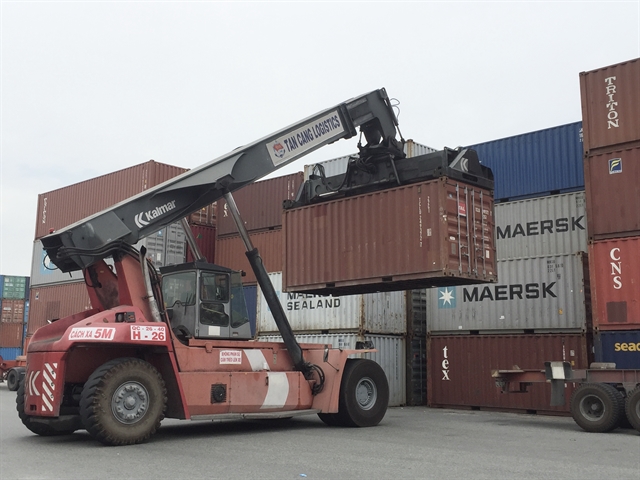 Economy
Economy


|
| Việt Nam’s logistics sector offers attractive investment opportunities for private equity firms and other well capitalized investors, who could help the industry accelerate earnings by adopting international best practices. — VNS Photo |
HCM CITY — Việt Nam might have one of the fastest growing logistics industries in the world, but it remains highly fragmented.
This presents attractive investment opportunities for private equity firms and other well capitalised investors, who could help the industry accelerate earnings by adopting best international practices, Michael Kokalari, chief economist at VinaCapital Fund Management JSC, said.
The sector had grown at 14-16 per cent annually in recent years, but logistics costs accounted for over 20 per cent of GDP, among the highest in the world because of the industry’s innumerable inefficiencies.
Kokalari said the rapid growth of Việt Nam’s logistics sector growth was sustainable because of the ongoing expansion of the country’s manufacturing sector driven by high-tech products, and the continued growth of its middle class, which also presented numerous investment opportunities, especially in niches such as cold-chain logistics because of a greater demand for fresh food, certain perishable pharmaceutical products and in ecommerce such as last-mile delivery.
E-commerce was growing at more than 25 per cent annually, and the Government targeted a much bigger role for e-commerce going forward, which was likely to lead to a regulatory environment especially favourable for “last mile” and other logistics firms, he added.
Việt Nam’s logistics industry comprised of foreign and local firms, but the latter were essentially absent from the international shipping business with the exception of the handling and delivery of goods overland across the northern border with China.
The industry’s biggest challenge was improving the quality and reliability of its services, and these could be addressed by replicating best practices in other logistics markets.
The logistics businesses most in need of investments were capital intensive ones and in segments that were highly fragmented, he said.
For instance, transportation firms accounted for around two-thirds of the industry, but over 80 per cent of trucking firms in Việt Nam had a fleet size of fewer than five, and after an estimated 70 per cent of deliveries, trucks returned to its home base empty.
Middlemen got nearly 30 per cent of trucking companies’ final service fees as commission.
Even in cold storage transport, considered to be one of the most promising segments in the logistics industry and dominated by foreign-invested firms, an estimated 70 per cent of firms had less than 10 trucks.
“In our view, some very compelling opportunities for local firms stem from the fact that sophisticated foreign customers are willing to pay premium prices for reliable logistics services, and that middle-class customers’ demand for products and services that entail high-quality logistics, such as online shopping with home delivery and demand for perishable foods and medicines, is soaring.”
But logistics operators with sufficient scale and professional management would experience falling costs over time as bottlenecks stemming from Việt Nam’s infrastructure and other issues were eventually addressed.
“We also expect attractive investment returns for logistics firms that are beneficiaries of increased high-tech manufacturing in Việt Nam, and from the ongoing growth of its emerging middle class.
“Finally, we see three potential investment strategies: invest into leading logistics companies to aggressively grow their assets into an integrated platform which offers clients economies of scale; identify particular assets which need capital for upgrading or can be re-purposed, and drive new business by increasing efficiencies and M&A or consolidation.
“One attractive niche in Việt Nam’s logistics industry is the customs clearance business, in which brokers with good relationships with the proper officials can expedite the clearance of goods in and out of the country by assuring compliance with the complex regulations entailed.”
Most of Việt Nam’s 800+ freight forwarding companies provided customs clearance services, according to the Vietnam Logistics Business Association, but firms which could bundle customs clearance services as part of a “core carrier” relationship, capable of satisfying all of the shipping and logistics needs of high tech manufacturing firms could enjoy enhanced pricing power in exchange for providing premium logistics services to those firms. — VNS




